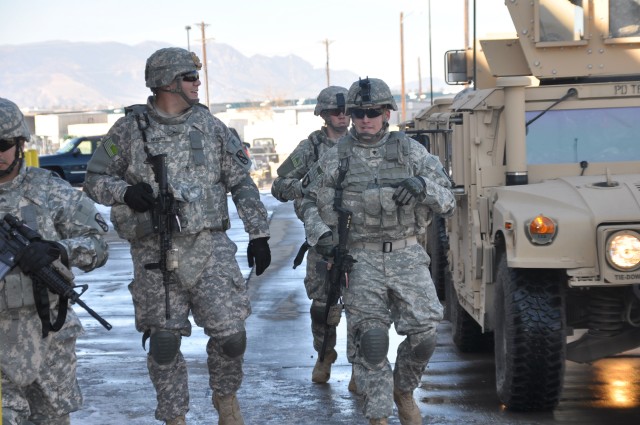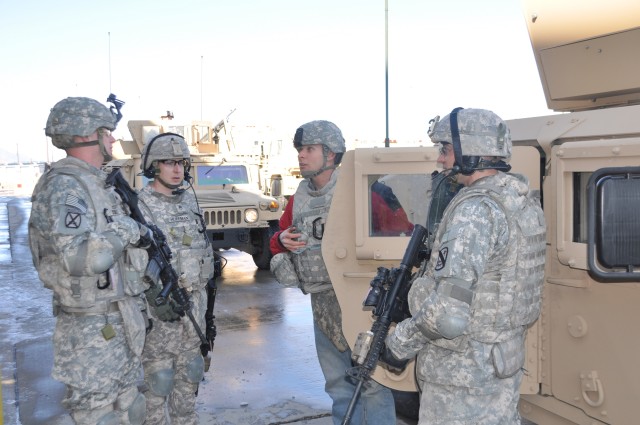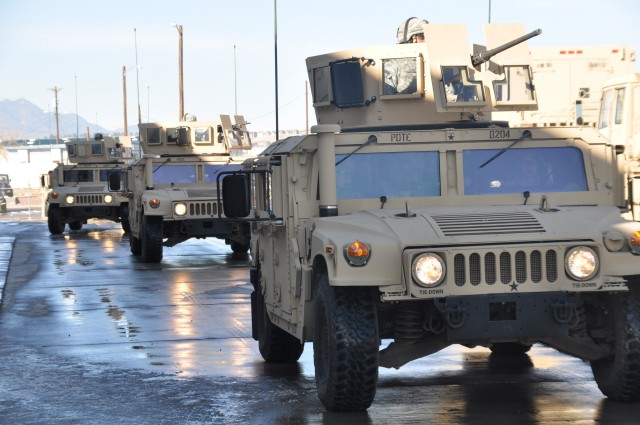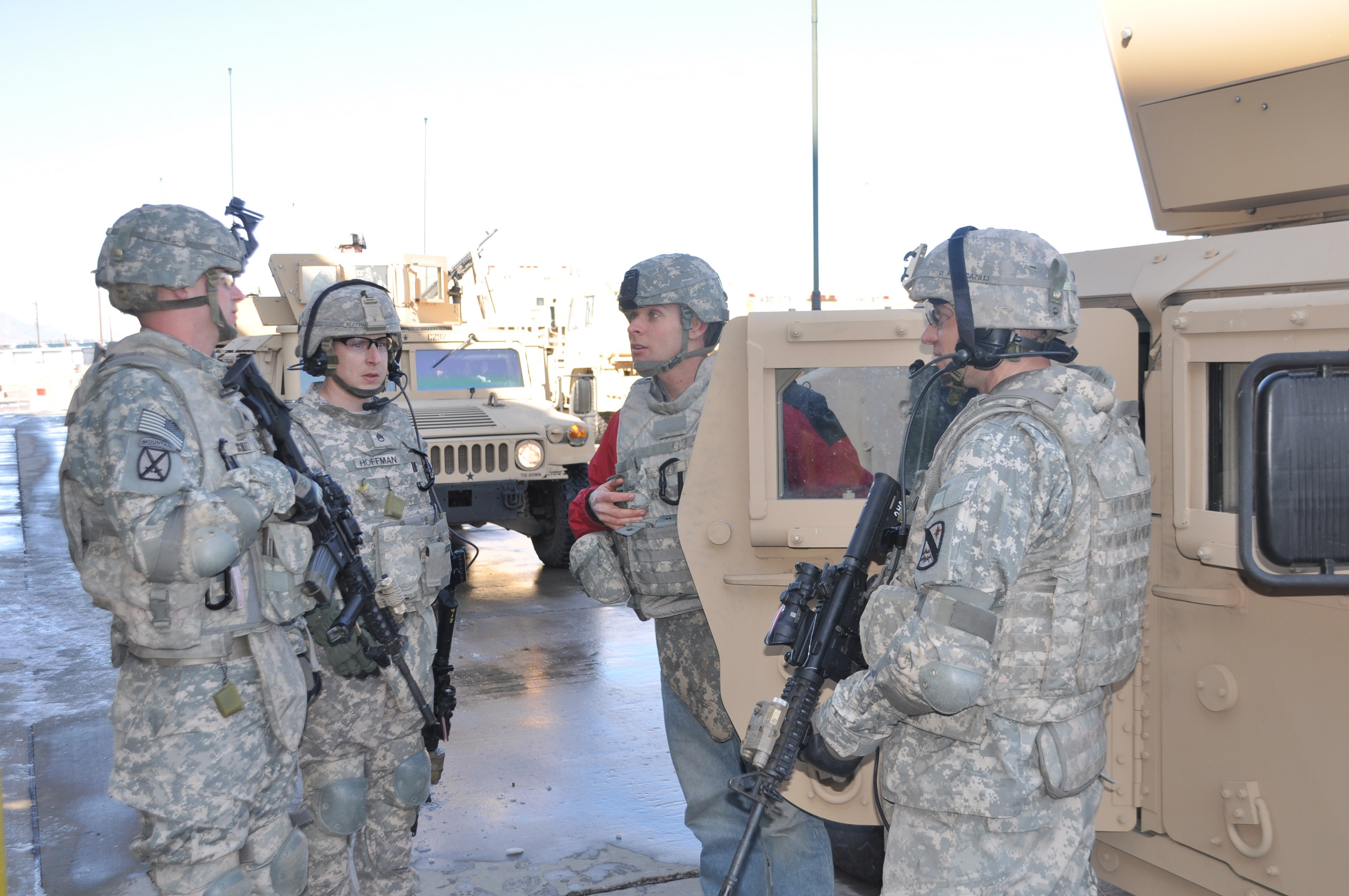FORT CARSON, Colo.---Members of the Protective Services Detail Team, 43rd Sustainment Brigade, conducted extraction training exercises at Fort Carson Jan. 29 in preparation for future deployment to Afghanistan.
This training event teaches Soldiers how to protect high value targets while in theater. Their job is to take all the worry about safety out of the head of the VIP they escort, so that person can concentrate on the job or mission.
Sgt. Johnathan Carmean, the team leader involved in the training of the personal security detachment, known as "The Trojans," said the reason they train is simple.
"If a colonel needs security, we provide that security," he said. "We take care of the location, we go in and we clear the objective."
Clearing the objective means putting themselves in harm's way on a daily basis. That could mean checking out a route and clearing any potential enemies along it, securing an area before a meeting takes place, or even going through an entire building looking for anything dangerous.
Their job is to escort "the package," or human VIP, to-and-from their objective. They provide security and show a presence of force wherever needed.
1st Lt. Eric Steffen, officer in charge for 43rd Sustainment Brigade's PSD Team, explained what the group was doing during the training here at Fort Carson.
"We're doing a simulation of escorting the principle (the VIP) into an unsecured location and having our Soldiers react to a hostile situation, extracting the principle from that location and (evacuating) rapidly," he said.
This is similar to how the Secret Service protects the president when dealing with a potentially hostile or deadly situation.
"Primarily, I would be (with them) running operations as the convoy commander," said Steffen. "There could be days where we all have to go different directions and escort different people, so it's not unlikely for a staff sergeant or sergeant to be convoy commander and run the show, telling a full-bird colonel, 'hey, I'm in charge of your safety today, sir ... this is what we'll be doing.'"
As Steffen puts it, what this means is simple - no matter a person's rank, no matter a person's status, the security detail is always in charge when an operation is under way.
"A specialist can grab a full-bird colonel," said Steffen, "and (physically) put him in the truck and say 'We're leaving now, sir ... the meeting's finished.'"
Steffen said this type of training prepares his Soldiers both mentally and physically, which are of great value where they are going.
"It's extremely important because of the amount of ground a brigade or a battalion commander would have to cover (in a day or week), for the amount of meetings he has to go to ... it's important for him to be able to go to those locations, feel safe and secure, and not have to worry," said Steffen.
The PSD Team will be providing protection to the command group of the 43rd Sustainment Brigade Headquarters, and is now fully trained on building extraction, route clearing and convoy operations.
The 43rd Sustainment Brigade Headquarters and Special Troops Battalion will be deploying to Afghanistan this spring.






Social Sharing